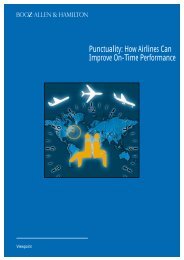The sentence
The sentence
The sentence
You also want an ePaper? Increase the reach of your titles
YUMPU automatically turns print PDFs into web optimized ePapers that Google loves.
4. With adjectives like busy we use –i in place of –y: busy-busier-the busiest.<br />
5. We use the comparative when comparing one person or thing with another.<br />
6. We use the superlative when comparing one person or thing with more than one other.<br />
Adjectives with two or more syllables: ‘clever’, ‘expensive’<br />
1. Some two-syllable adjectives like happy (clever, common, narrow, pleasant, quiet, simple,<br />
stupid) have two comparative or superlative forms:<br />
- either with –er/-est: She’s cleverer than you. She’s the cleverest person I know.<br />
- or with more/the most: She’s more clever than you. She’s the most clever person I<br />
know.<br />
2. We use only more/the most with most two-syllable adjectives: careless, correct, famous.<br />
3. We use more/the most with three-syllable adjectives: more beautiful, the most<br />
beautiful.<br />
Comparative and superlative forms often confused: ‘older/elder’<br />
1. Further and farther refer to distance: London is five miles further/farther.<br />
Further (Not *father*) can mean ‘in addition’: <strong>The</strong>re’s no further information.<br />
2. We use elder/eldest before a noun only with reference to people in a family:<br />
my elder brother/son, the eldest child, he’s the eldest (but not *He is elder than me.*)<br />
We use older/oldest for people and things: He is older than I am. This book is older.<br />
3. Irregular comparisons: good/well, better, the best; bad, worse, the worst; much/many,<br />
more, the most; little, less, the least.<br />
Good is an adjectives; well is adjectives or adverb.<br />
4. Lesser is formed less but is not a true comparative. We cannot use than after it.<br />
Lesser means ‘not so great’ and we use it in fixed phrases like the lesser of two evils.<br />
5. Latest/last: I bought the latest (i.e. most recent) edition of today’s paper.<br />
I bought the last (i.e. final) edition of today’s paper.<br />
6. <strong>The</strong> comparative and superlative of little is smaller/smallest: a small/little boy, a<br />
smaller/the smallest boy. Very young children often use littler and littlest.<br />
38




